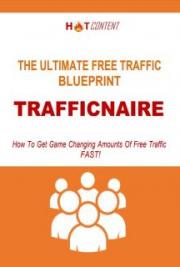5 Tips for Successful Small Business Marketing
By: Ledoc
















































































































































































































































































You have resell and master resell rights to this report. You can freely distribute it in any way you wish as long as it remains unaltered. You may also sell it at any price you wish, through any media, and may pass on resell rights.
Introduction
Marketing is the lifeblood of any business, big or small. Marketing drives the sales (of products, expertise, services or whatever your business is about) that bring in the money that gives your business cash flow that allows you to stay in business.
The only real difference between big business and a small business owner when it comes to marketing is that the small business owner rarely has the money and resources to embark on a massive, all encompassing marketing campaign!
This is probably just as well because you could end up wasting a lot of time, effort and other resources that would be better utilised elsewhere! Why? Because marketing is one area where, with a bit of effort and thought, a small business owner can beat the big guys – time and again. How is that you ask?
Well, as a small business owner, you have (or can quickly acquire) a far deeper and more intimate understanding of what your customer wants, the norms and quirks of the area and industry you operate in, and what your competition is up to.
And your trump cards? – You are much closer to your customer than any corporate management structure and you can make decisions and effect changes to your marketing efforts very quickly.
So, with that in mind, let us have a look at 5 key points that will help crystallize your thoughts and give you direction on how best to market your small business.
1) What do you want?
This might not sound like a very marketing orientated question, but in fact it goes to the very core of marketing your small business.
People start small businesses for a variety of reasons – to be their own boss, to work from home, because they were laid off, because they saw an opportunity, or the kids are now at school etc etc.
Whatever the reason for starting a small business, one of the key elements for the success of your business is to know where you want to go with the business, because that “vision” is going to dictate how you market your business.
Compare the following two scenarios.
a) You start a small business with the vision of building it up so that somebody will buy it from you in 10 years time for enough money for you to retire on. Or
b) Your kids are now at school for at least the morning 5 days a week so you start a small business with the aim of making enough extra cash to take the family on holiday every year.
It is quite obvious that the whole approach to marketing the small business in scenario one is going to be quite different to marketing the small business in scenario two.
Different mindset, different goals, different target markets, different marketing channels, different infrastructure etc etc. The key element here is to be clear in your own mind what you are aiming to achieve. Without that, you will waste a lot of time, effort and probably money getting somewhere you don’t want to be!
2) What are you prepared to do?
How will you conduct business? What lengths are you prepared to go to in order to secure a customer? How do you want your customers to see you?
In essence we are talking about values here. The business world can be a tough place to operate in and there are legions of stories of business people succumbing to dubious or even illegal activities, in order to make an extra buck.
However, your business values go way beyond the simple division between legal and illegal. They permeate every aspect of how you conduct business, whether you are conscious of it or not.
What has this to do with marketing? – well everything actually. Customers aren’t fools and if you keep telling them one story with your marketing but their experience of your business does not match (or exceed) the expectation that you have created, then you will run out of customers sooner rather than later.
Values and meeting expectations are two more areas where as a small business you have a huge advantage over big business. It is far easier to instill a set of values in a small number of people than in a large, often geographically diverse, organization populated with people from all walks of life.
Likewise, you have far closer control over interactions with customers in a small business, and thus a far greater likelihood of being able to manage their expectations.
Even if your small business is staffed by only one person – you – realize that all your marketing efforts will turn against you if your message to your customer does not match how they experience doing business with you.
Realize too that your customer’s experience of doing business with you will depend on your business values and how you express these values day in and day out.
So, before you embark on marketing your small business, have a good think about how you want your customers to experience your business, and how you are going to ensure they are not disappointed.
3) Who are you going to tell?
Who wants, or is likely to want, or should want, or might want, what your small business is selling?
And which of these potential customers are you going to tell about your business?
If you answered – all of them – then think again. For a start, a small business can’t possibly satisfy the expectations of a very broad clientele.
Secondly, and more importantly, you want to eliminate as far as possible having to deal with “bad” customers – i.e. those that don’t pay, those that drive you nuts for very little return etc etc.
To ensure that your marketing doesn’t attract the “wrong sort’ of customer, you need to define your “ideal” customer BEFORE you undertake any marketing.
Its simple logic – the more accurately you can define your target market (the people you want to talk to), the more accurately you can focus your marketing efforts on them.
By deciding on whom you want to tell, you will be in a better position to judge how best to reach them with your message and what sort of message will appeal to them.
4) What are you going to tell them?
This is where the rubber starts to hit the road! What messages are you going to communicate to your customers?
This requires a lot of thought, because the messages you communicate need to be consistent, whatever the medium you use to do the communicating.
If the messages you communicate to your customers are not consistent, then you are creating a problem for yourself because (a) the customer is not sure what you are offering and (b) as a result you will not know what the customer expects!
The likely result of this is a less than happy customer, which really means that your marketing efforts have been wasted. Worse still, you have paid in time, effort and perhaps money to create an unhappy customer! Now that is not very smart.
So be very careful in choosing what you are going to say to your customers and make sure you don’t confuse the message. A final note of warning. Remember that the message you send out creates an image of your company in your customer’s mind.
So, not only must your message be consistent in what it is offering, it must also be consistent in the image that it creates. Sometimes that is easier said than done, especially in a small business when things tend to get done in a rush.
And don’t forget – your business needs to live up to the image of it that you create with your marketing efforts.
5) How are you going to say it?
For a small business, this is where you have to start budgeting sensibly because if your enthusiasm runs away from you, you can end up spending thousands without much effort.
You need to know exactly how much (if anything) you are prepared to spend, and then work within that framework.
Don’t let anyone persuade you to spend more with promises of clients falling over themselves to spend money – adopt a more cautious approach and do the achievable.
There are literally dozens of ways you can communicate your message to your target customers, from the traditional, like advertising and direct marketing, to the latest bizarre fad.
One of the newer methods of communication that has been developed is obviously the internet. With the development and increasing usage by the search engines of “local search”, many small businesses can now economically and successfully own and operate their own website, giving them a far greater reach than was previously possible.
Look at whom you want to talk to, what you want to say, then look at the various methods of communicating your message. Factor in your budget and away you go.
If your budget wont stand up to what you want to do, then change your method of communication. While you will always be able to find a suitable way to deliver your message, you should not (and shouldn’t be tempted to) plunder the budget to satisfy a whim.
Conclusion
Marketing should be an exciting and rewarding part of running a small business. Many small businesses fail to reach their full potential, or go bust, simply because the small business owner spends too much time working in the business, and too little time working on the business.
Marketing feeds clients and therefore money into your small business. Without those 2 elements, you don’t have a business!























































































































































































































































































